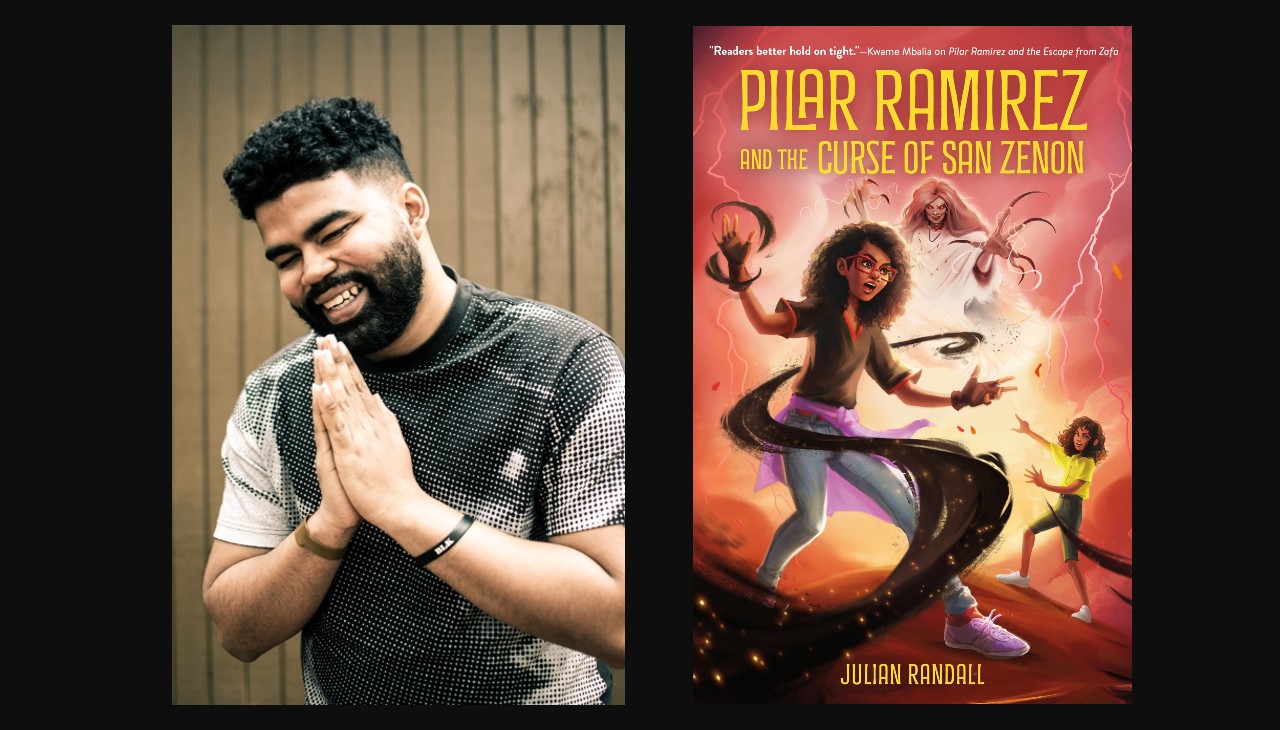
Julian Randall: Binding Magic and History
Chicago based Afrolatino writer Julian Randall wants Latinx kids to learn about their past from an optimistic perspective.
Julian Randall grew up in Chicago but he considers Philadelphia his artistic hometown. “I began taking writing very seriously when I was going to events at the Philly Pigeon back in the 2010s!,” he recalled in a recent interview with AL DÍA, a newspaper he is very familiar with. “Al DÍA was always a vibe for me. If I saw it on a stand it felt like I was somewhere safe, so being interviewed for it is wild,” he joked.
With an MFA in Poetry from Ole Miss, Julian Randall defines himself as a "Living Queer Afrolatino" poet and children’s book writer from Chicago.
Born to a Dominican mother from Washington Heights, he is the author of 'Refuse' (Pitt, 2018), a poetry book documenting a young biracial man’s journey through the mythos of blackness, latinidad, family, sexuality and a hostile American landscape, as well as the middle grade fantasy novels 'Pilar Ramirez And The Escape from Zafa' (Holt, Winter 2022), and 'Pilar Ramirez And The Course of San Zenon' (Holt, February 2023), starring a teenager with a deep curiosity for her identity and her family’s country of origin: the Dominican Republic.
RELATED CONTENT
“When I was 8 years old I stumbled downstairs looking for my mom and I found her crying, and I’d never seen her cry before. And she was crying over a book, so I was double confused. And when I asked what she was crying about, she said ‘this is the story of the woman who fought back against the man who kicked your abuelo off the island,’” Randall recalled. The story her mother told her then —her grandfather had to be exiled from the Dominican Republic for having told a joke about Trujillo to his friends— stuck in his head and all the questions that were raised then are the ones she wanted to answer in her series on Pilar Ramirez.
“The first time I heard this all eight years of my mind exploded with questions. Questions on why I’d never learned this in school, on whether Trujillo was still out there, on what happens if they had caught him. And all of those questions, all that worry for which there were no books for a kid my age, all of it became Pilar. I wanted to make a book where an Afrolatina finds magic in memory and challenge in history. I wanted the daughter my mother never had to be a hero I’d have loved as a kid. I’m blessed that all of that became Pilar,” he explained.
The burden of lineage
According to Randall, we have everything to gain from reckoning with the past with an eye towards healing. “We are all, each of us, in the face of a renewed tide of fascistic autocrats. People are banning books because they are looking to ban people. They are also banning people outright and it will continue for as long as we refuse to learn from and build upon the past,” he said. “I write for all kids who are looking to take a stand against that, globally or on their block. I wrote this book to Latinx kids, but I wrote it for everyone, because everyone is affected by this new generation of Trujillos we see moving now.”
No doubt lineage is omnipresent in Randall’s writing —“I felt pushed to write by the fact I couldn’t hold many of these stories inside anymore”, he said—, but magic has also a strong presence, especially when he writes fiction for kids. “There’s magic in everything in D.R, there’s supernatural stories all around and under every tongue.”, he said. “I wanted Pilar’s magic to come from memory and be tied to her afrolatinidad. I write books for young people that bind magic and history because on the rare chance that we were learning something about Black folks or Latino folks in school it was always some massive pain or tragedy we had survived and I came to wonder if it was because our teachers couldn’t see our magic, our joys, our full whole lives. Magic to me is about making tangible what is intangible,” he concluded.
Whether it’s Poetry or Children’s books, Randall remembers clearly that the idea of becoming a writer began at college, when his best friend invited him to an open mic. “My plans to catch up on 'Breaking Bad' and eat cocoa puffs had derailed moments earlier when I discovered my roommate had drunk up all the milk I’d been saving. So I say ‘Fine, I’ll slide to the poetry thing.’ And for the first time I heard poems from people my own age, folks I knew were children of hip hop and called their ancestors ‘Abuela’ too,” he remembered. “I fell in love, I felt like I could be good at it and the more meetings I came to the more writing became my bridge to feeling like myself,” he concluded.












LEAVE A COMMENT: